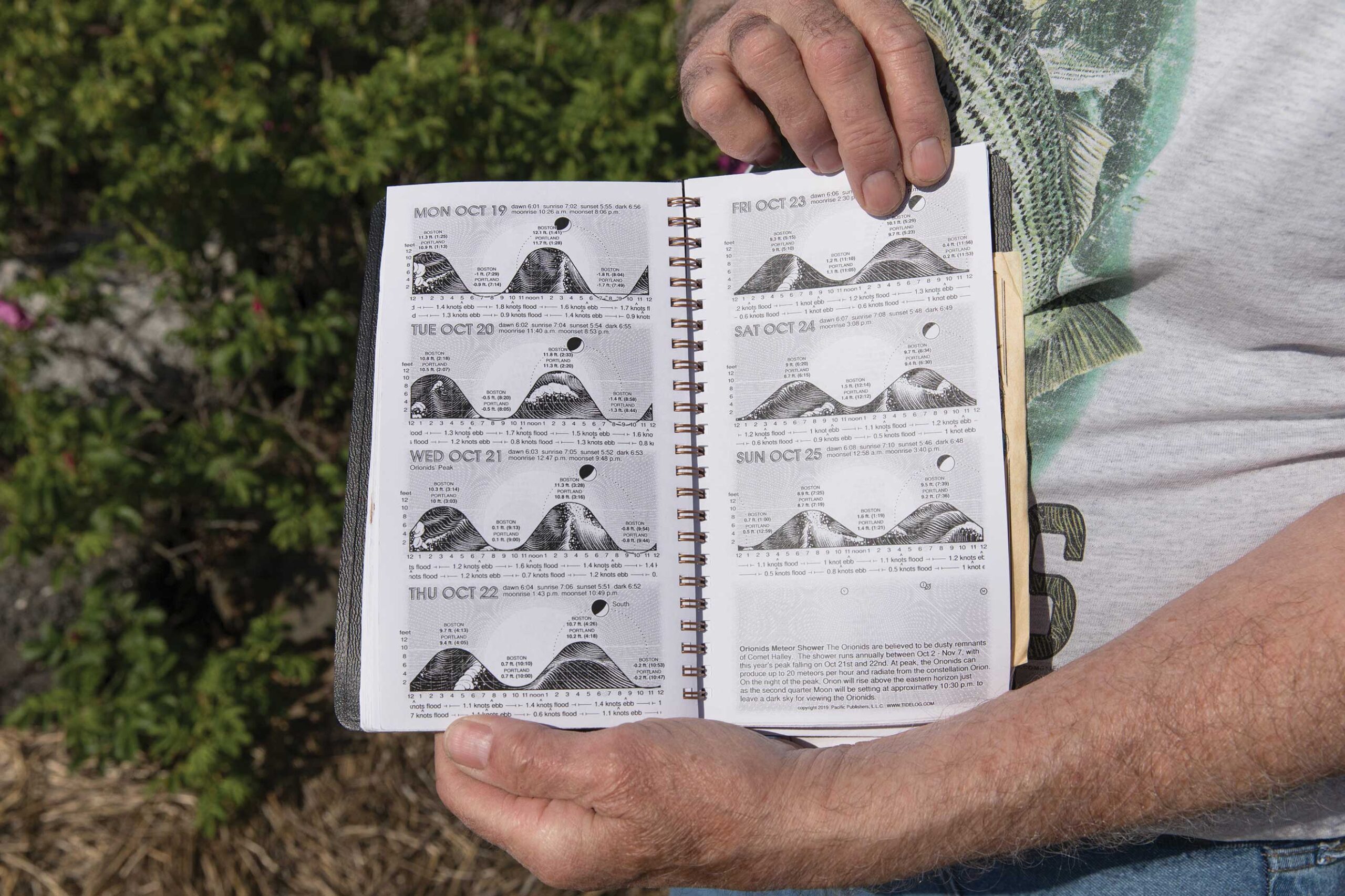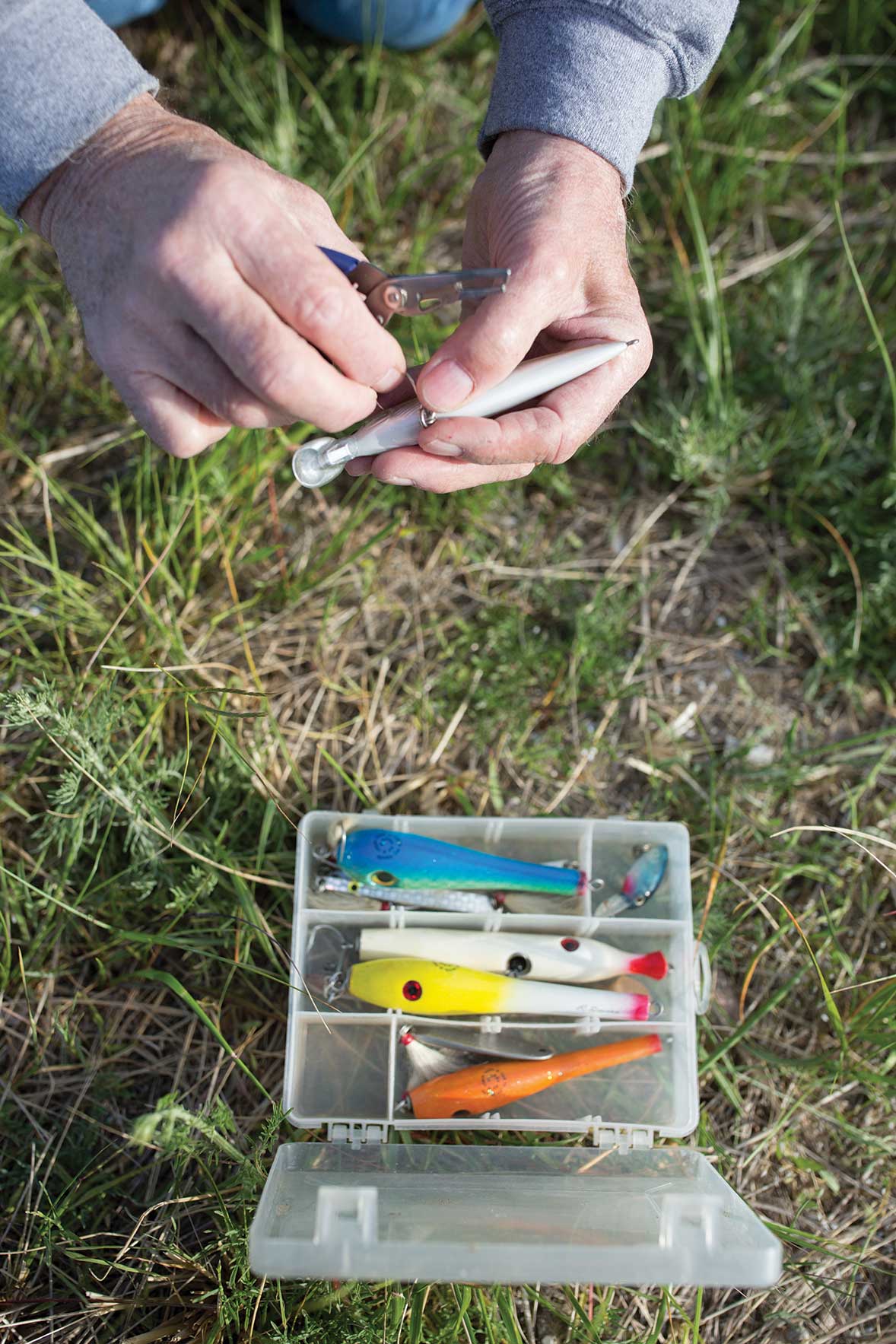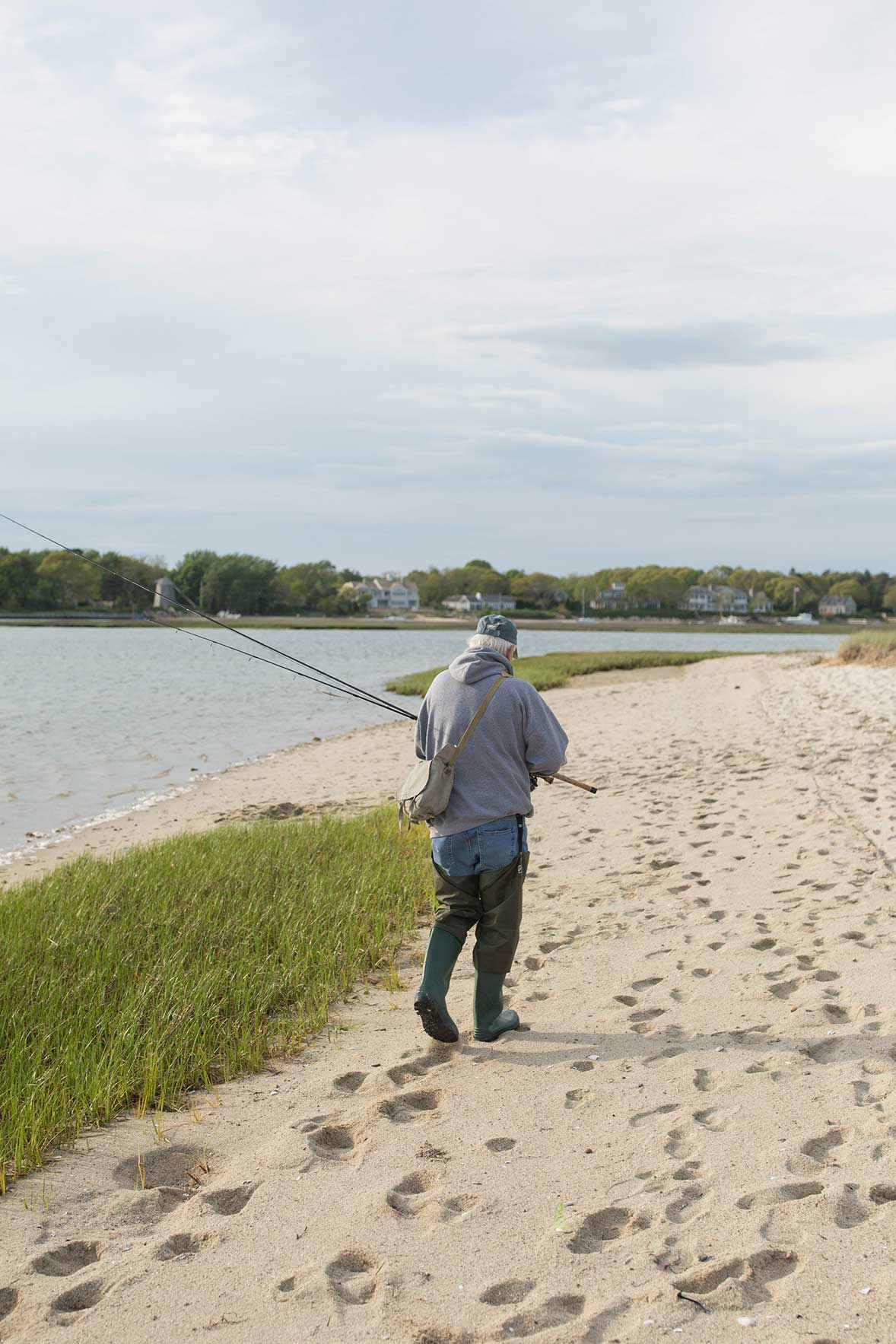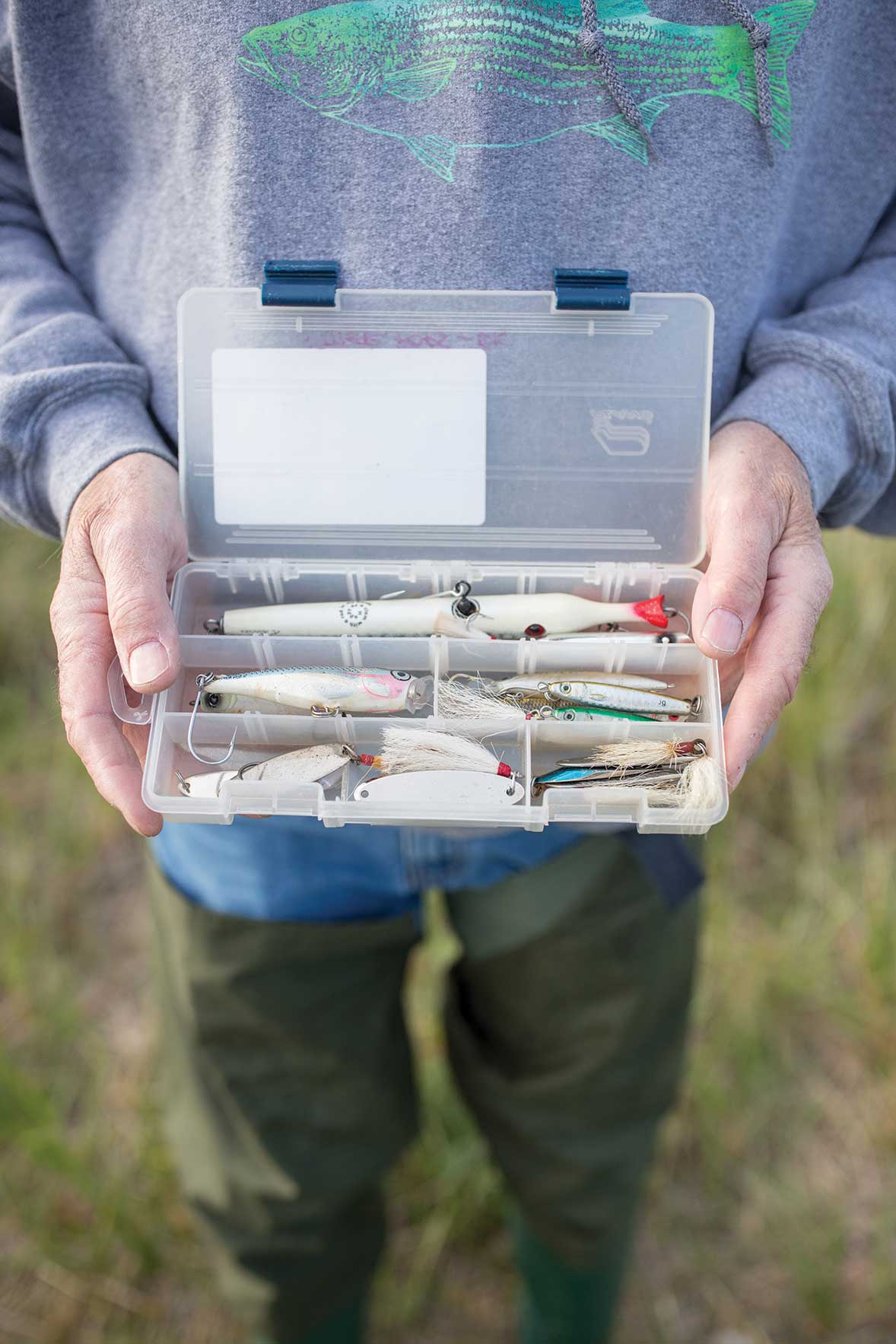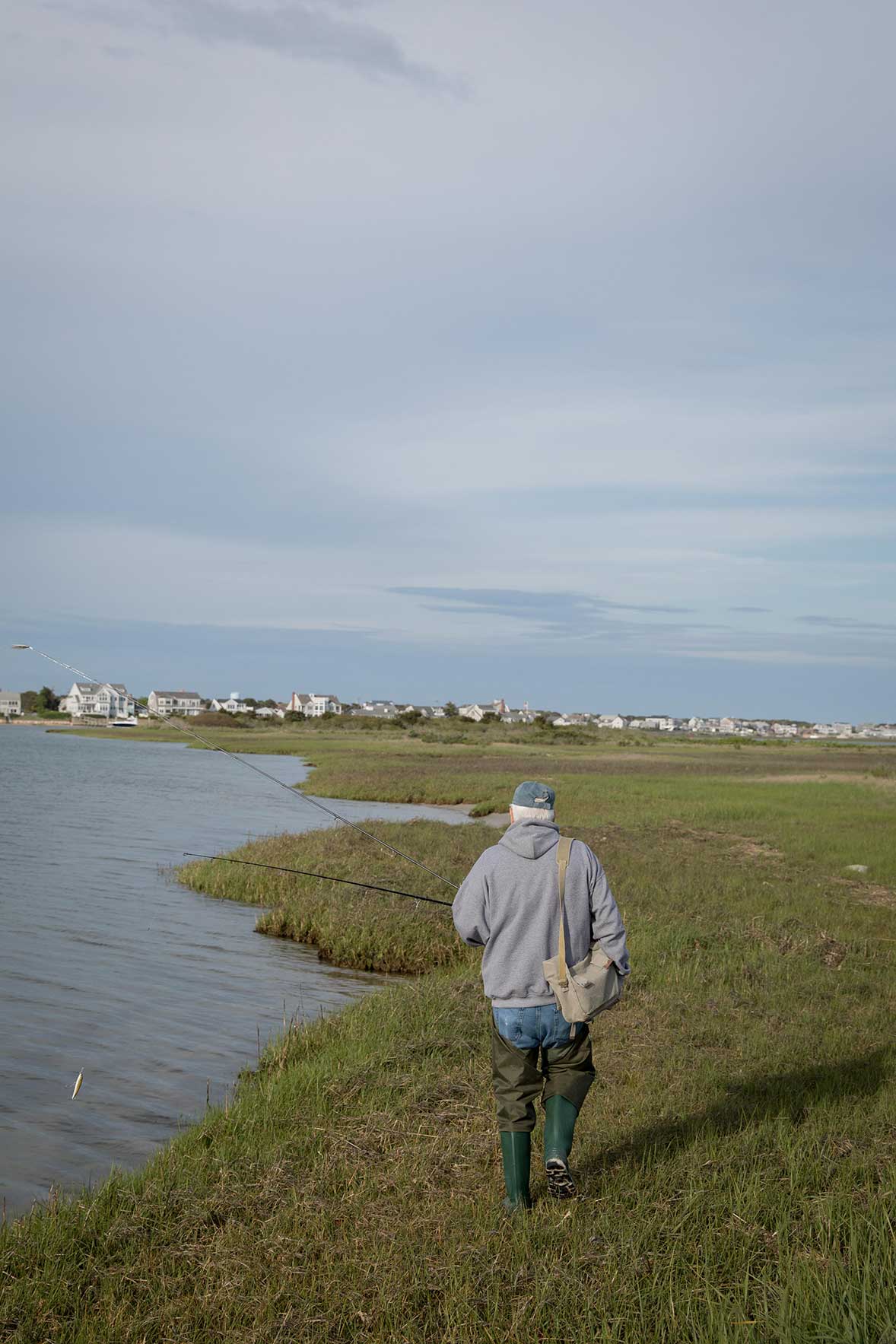Lou MacKeil on the joys of fishing
Plus 16 spots to cast a line
by Bill Higgins
Photographs by Matt Cosby
It’s a raw spring afternoon on Cape Cod with a biting Northeast wind. It’s a day for inside projects or hobbies. However, Lou MacKeil of North Harwich, wrapped in a nylon jacket and blue cap covering his white hair, is relishing the moment, alive in his element.
MacKeil isn’t a postal worker, but heeds its creed: “Neither snow nor rain nor heat nor gloom of night stays these couriers from the swift completion of their appointed rounds.”
The 83-year-old MacKeil is a fisherman and inclement weather won’t keep him from his pursuits. On this day it’s striped bass in West Dennis; tomorrow it might be trout at a Brewster pond. Morning, noon, or night, any time of the year, he is fishing or thinking about fishing. It’s been this way since MacKeil was a little boy in his native Natick. His first memory is from a December day with his father ice fishing on Lake Cochituate. He was 4.
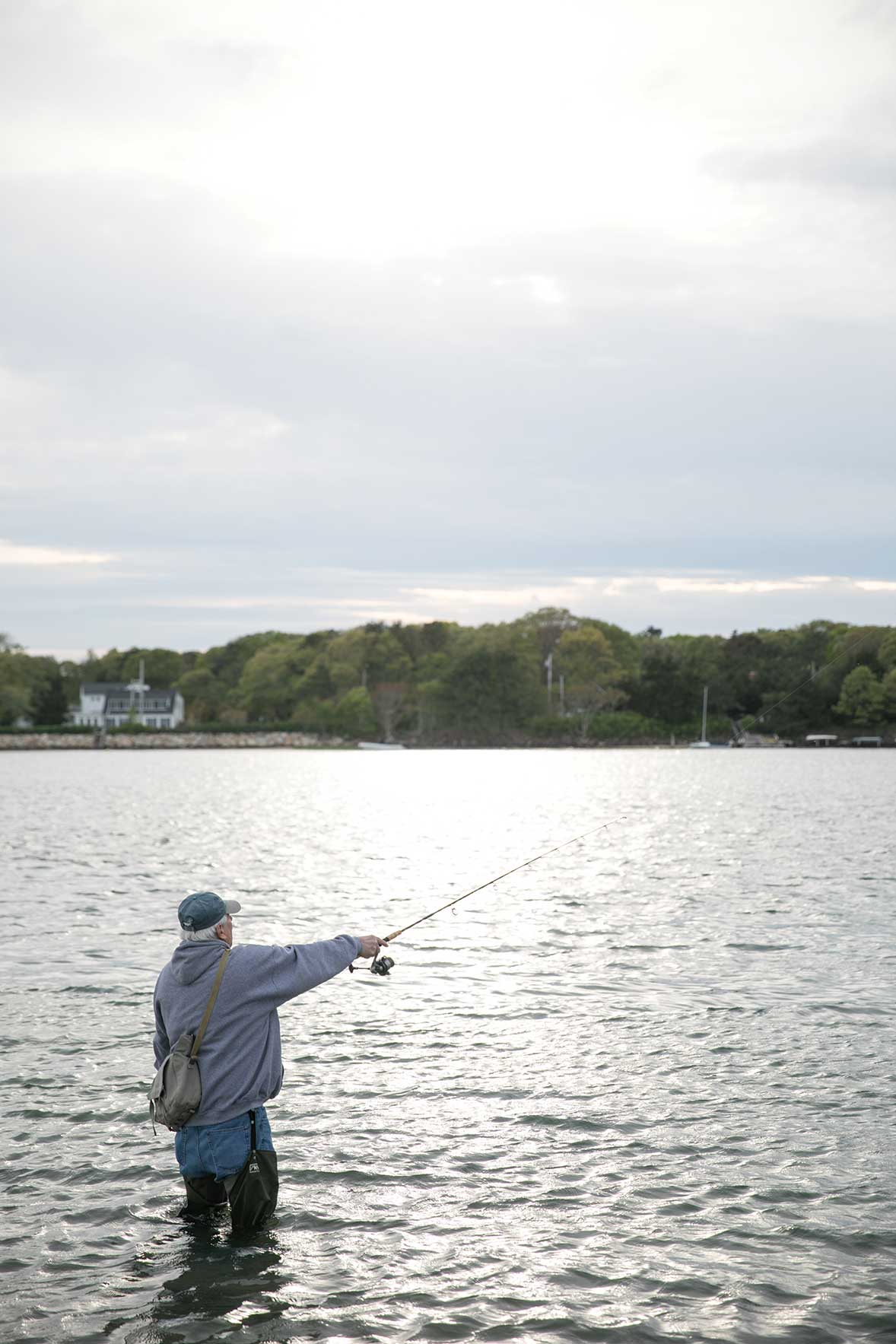
“I truly believe it’s in my blood,” says MacKeil. “I think I have water in my veins, whether it’s fresh or salt. I get restless if I’m not fishing.”
The coronavirus pandemic hasn’t slowed him and social distancing isn’t an issue. He enjoys time alone on the water, content in the solitary chase.
MacKeil spent his teenage years in the early 1950s working summers on the Cape, too busy to fish. After a stint in the air force and time at the University of Massachusetts studying electrical engineering, he opened a television sales and service business in Hyannis in 1964. It was then he returned to the water. He later joined the Cape Cod Salties Sportfishing Club and served eight years as president. He’s still active today as vice president of environmental affairs.
Widely recognized as an authority, MacKeil says fishing is a combination of skill, knowledge — and luck. “You can’t catch fish if you’re not fishing. I don’t sleep much. If I’m awake at night and the time is right, if the tides are right, I’ll go see if fish are there. But you won’t know if they’re there unless you’re there,” he says.
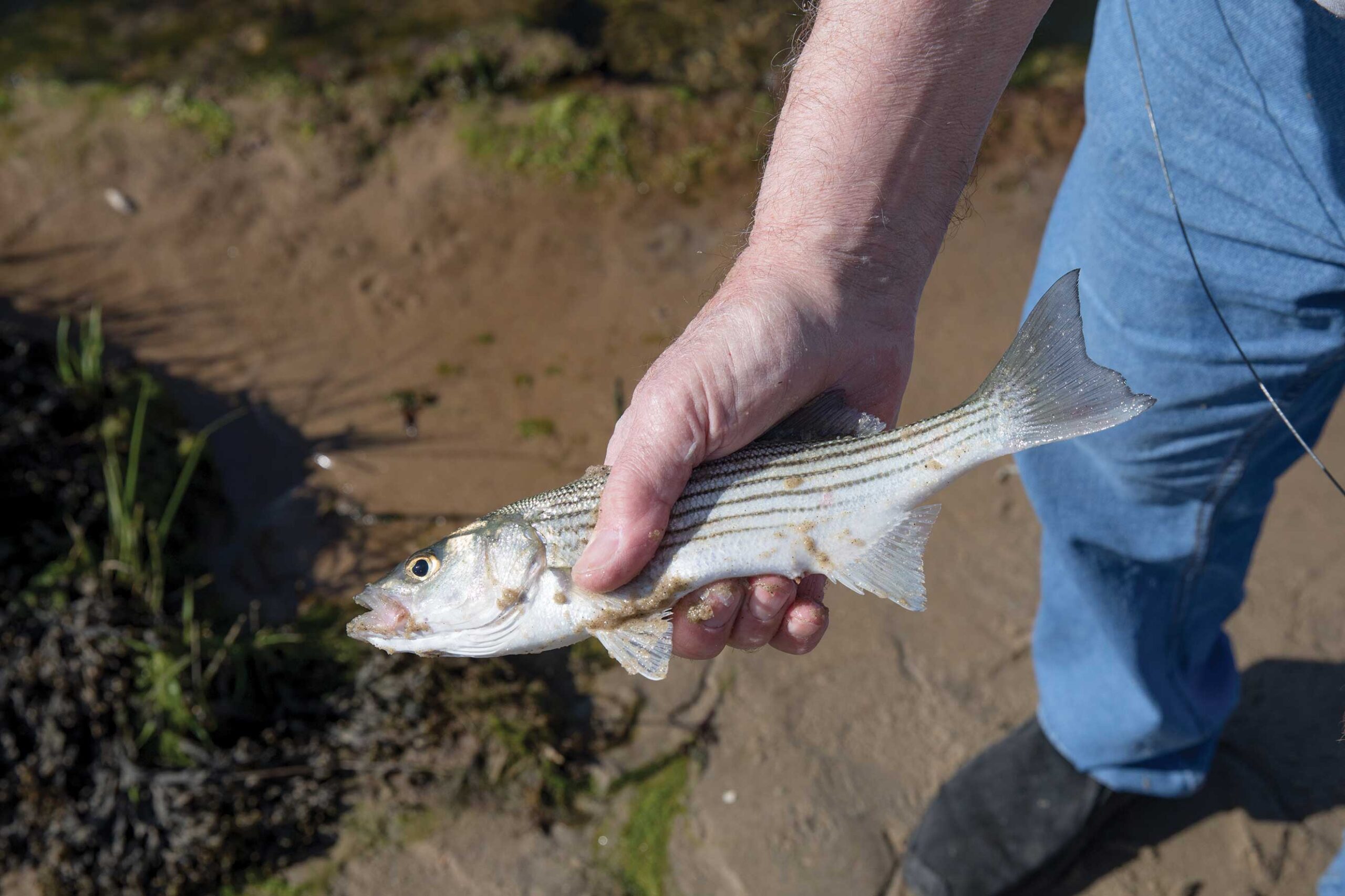
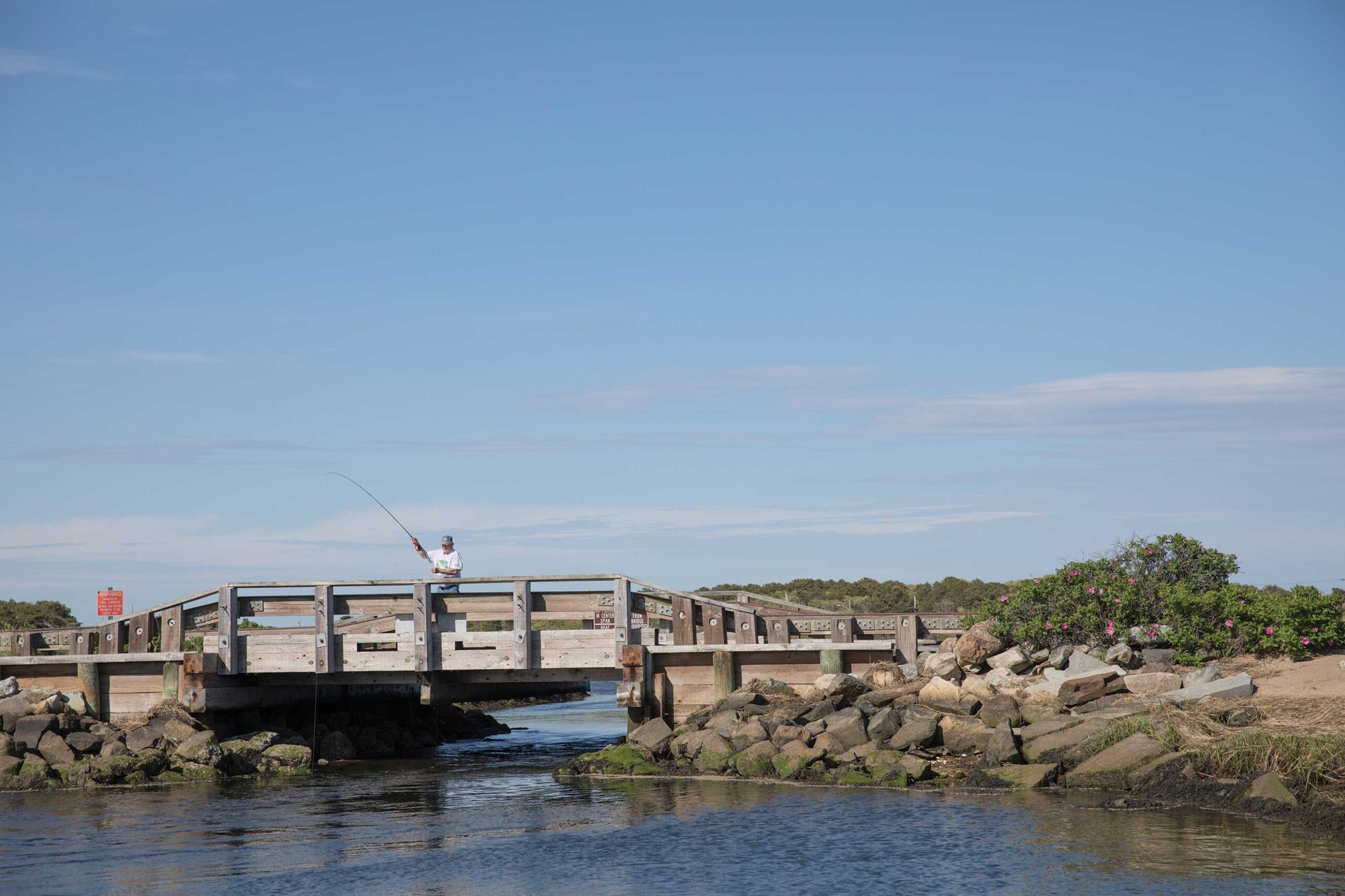
"I truly believe it’s in my blood, I think I have water in my veins, whether it’s fresh or salt. I get restless if I’m not fishing." — Lou MacKeil
Fishermen are notorious for not revealing favorite locations and MacKeil admits to having secret spots, but he is unselfish sharing his expertise. Since 1989, he has taught an eight-week “Catch a Fish” course through community schools. The classes include everything from proper gear and techniques to studying wind, water, and tides. Field trips are part of the curriculum and most students—nearly 2,000 he estimates—are successful catching fish. “I don’t have all the answers,” says MacKeil, “but I can get you started. You learn as you go through trial and error. You have to put in your time.”
Kara Pritchett of Dennis was a beginner when she took the course a few years ago and says MacKeil has since invited her to fish with him. “He’s very generous with his knowledge and enjoyable to be around,” says Pritchett.
After nearly 80 years fishing, MacKeil hasn’t lost his passion. In his younger days he chased big striped bass and fondly remembers what he calls the Night of the Big Fish in the early 1990s when he pulled a 50-pounder from the roiling surf on the north side in Dennis. It was mid-October and after midnight. The wind was blowing hard from the northwest. It was 38 degrees and felt colder. “I was uncomfortable, but the fishing made it worthwhile,” says MacKeil. “There were a lot of big stripers caught, nothing under 30 pounds. That was some of the best fishing of a lifetime. It doesn’t happen often. We were lucky to be at the right place at the right time. I went back the next night, and nothing.”
These days MacKeil doesn’t need epic catches to be satisfied. He’s content having fun fly fishing for small stripers and bluefish, or largemouth bass and trout from the area’s many stocked ponds. “We have it all here. I’ve taken a largemouth from freshwater near Craigville Beach, walked a few hundred yards and caught stripers in the saltwater. That’s the treasure of fishing on the Cape,” he says. “Every day I’m not fishing is an opportunity lost. There’s nothing else I’d rather do.”
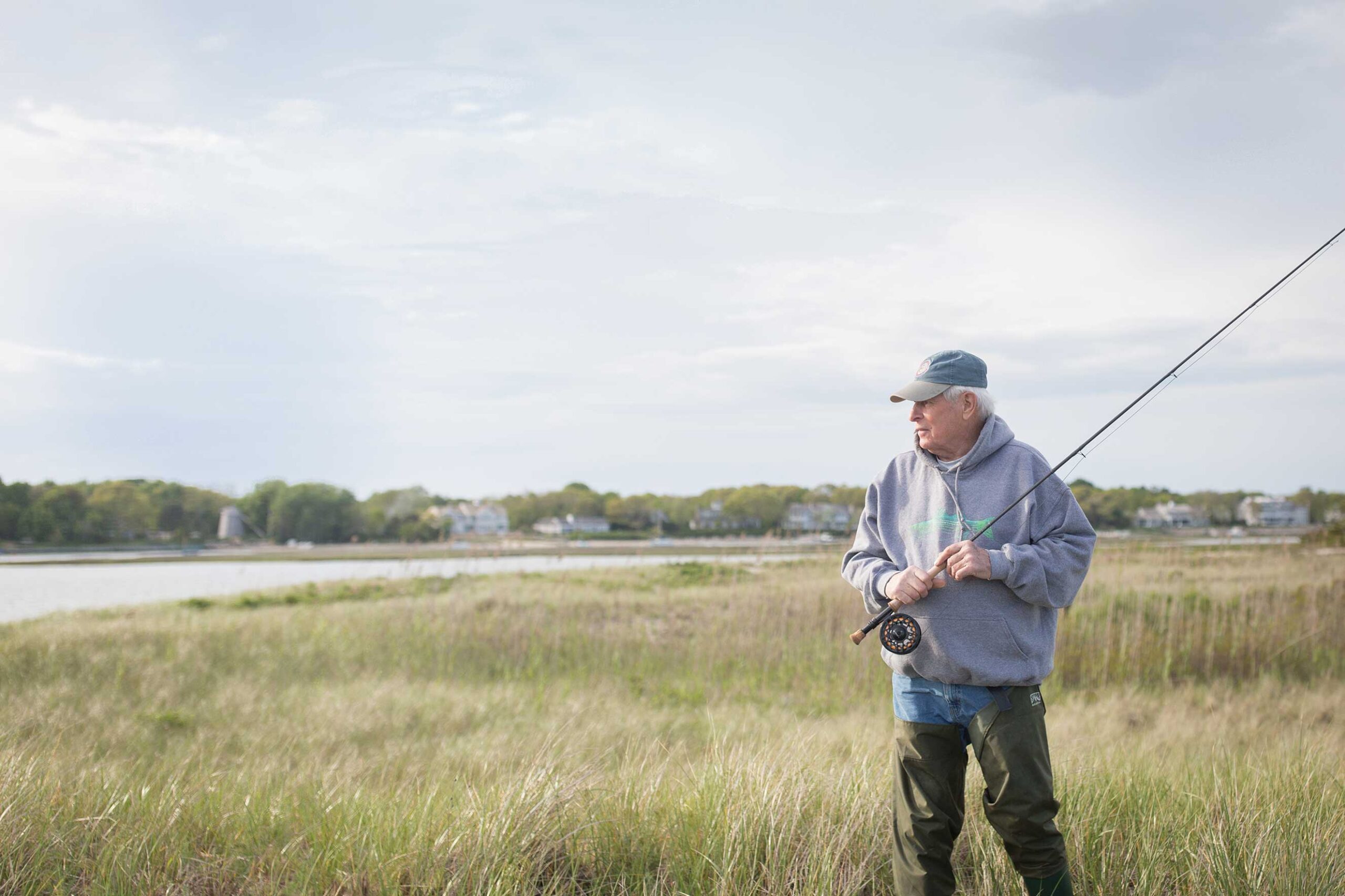
Going fishing on the Cape and islands
So you want to “wet a line,” in the parlance of recreational fishing. The unmistakable tug and feel of “fish on” will get the blood pumping. But before trying your luck, you need a license to fish saltwater or freshwater in Massachusetts. There are different permits and fees, and important regulations. Check out the state’s website at ma.wildlifelicense.com for information. Many local tackle shops sell licenses, but online is encouraged, and your time in a fishing store is better spent getting help and advice.
Now you’re ready to chase that trophy trout from ponds and lakes on the Cape and islands stocked by Mass Wildlife. Go to Mass.gov/Trout for a locator map. If saltwater is your preference, there are hundreds of miles of shoreline, inlets, and estuaries along Vineyard and Nantucket Sounds, Cape Cod Bay, and the Atlantic Ocean. The Cape Cod Canal is also a popular and productive spot.
You can hire a personal guide, book a trip on a party boat for deep sea angling or charter a captain. Of course, you can also go it alone and shore fish from a beach, jetty, pier, or bridge. Here are some suggestions if you choose the latter:
Saltwater
West Dennis Beach
Dowses Beach, Osterville
Cold Storage Beach, Dennis
Nauset Beach, Orleans
Ballston Beach, Truro
Freshwater
Nickerson State Park in Brewster (specifically, Cliff, Little Cliff, Flax and Higgins ponds)
Shubael Pond, Marstons Mills
Spectacle Pond, Sandwich
Martha’s Vineyard
Menemsha jetty
Squibnocket Beach and Wasque Point at Chappaquiddick (via the Chappy Ferry from Edgartown)
Nantucket
Brant Point Lighthouse (near town and the ferry docks)
Smith Point in Madaket
Eel Point on the northwest side
